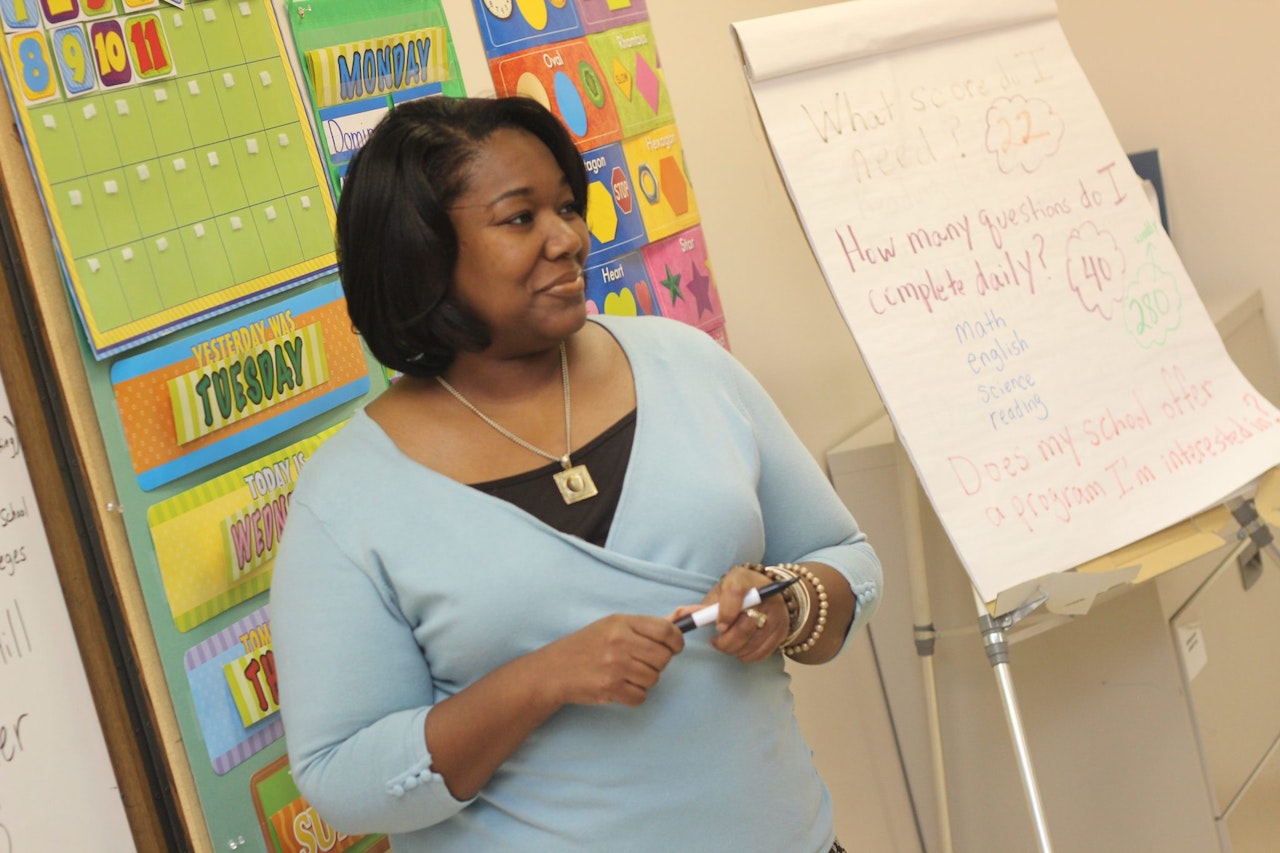B.S.Ed. Special Education Program Map

Dual Certification
Our degree program is designed to prepare candidates for initial teacher certification in grades Pre-Kindergarten through fifth grade school settings. Program coursework and field experiences promote research-based practices that ensure that all students can and do learn.
Stats
63
Core Credit Hours
64
Major Credit Hours
0
Elective Credit Hours
- Plan Your Degree
- Crush Your Course
- Find Your Place
- Broaden Your Perspectives
- Connect Off-Campus
- Take Care of Yourself
- Pave Your Path
Plan Your Degree
Disclaimer: This program map is intended ONLY as a guide for students to plan their course of study. It does NOT replace any information in the Undergraduate Catalog, which is the official guide for completing degree requirements.
| Course Name | Credit Hours |
|---|---|
|
C1: ENGL 1101
English Composition I |
3 |
|
M: MATH 1001 OR 1111
Quantitative Skills & Reasoning or College Algebra |
3 |
|
I2: XIDS 2002
First-Year Seminar |
2 |
|
F: MEDT 2501
Multiple Literacies for Ed |
3 |
|
T1: Science + Lab |
4 |
Milestones:
- Complete ENGL 1101 with a C or better.
- Complete Core IMPACTS Math & Area F with a C or better.
- Complete Lab Science.
- Earn 15 or more credit hours.
| Course Name | Credit Hours |
|---|---|
|
C2: ENGL 1102
English Composition II |
3 |
|
T2: Non-lab Science |
3 |
|
S1: Social Science |
3 |
|
F: Education Course |
3 |
|
F: Education Course |
3 |
Milestones:
- Complete ENGL 1102 with a C or better.
- Complete non-lab science.
- Earn 15 or more credit hours.
15 Fall Credit Hours + 15 Spring Credit Hours = 30 Credit Hours
| Course Name | Credit Hours |
|---|---|
|
T3: CS 1030
Introduction to Computer Concepts |
3 |
|
F: MATH 2008
Found of Numbers & Operations |
3 |
|
S2: GEOG 1013
World Geography |
3 |
|
PWLA 1600
Personal Wellness |
2 |
|
A1: Humanities |
3 |
|
F: ISCI Course |
3 |
Milestones:
- Complete Area F Courses with a C or better.
- Earn 15 or more credit hours.
- 2.7 or better GPA for on-time Teacher Education Admission after this semester.
| Course Name | Credit Hours |
|---|---|
|
A2: ENGL 2110, 2120, OR 2130
World Lit, Brit Lit, or American Lit |
3 |
|
F: ISCI Course |
3 |
|
P: Citizenship |
3 |
|
P: Citizenship |
3 |
|
I1: Written and Oral Communication |
3 |
|
PWLA Activity Course |
1 |
Milestones:
- Complete Area F Courses with C or better.
- Complete Core IMPACTS I1 Course C or better.
- Earn 15 or more credit hours.
- Complete Core IMPACTS.
17 Fall Credit Hours + 16 Spring Credit Hours = 33 Credit Hours
| Course Name | Credit Hours |
|---|---|
|
SPED 3713
Intro to Special Education and Mild Disabilities |
3 |
|
SPED 3750
Practicum: Diverse Experiences |
3 |
|
CEPD 4101
Educational Psychology |
3 |
|
READ 3251
Literacy Instruction through Children’s and Adolescent Literature |
3 |
|
ECED 3250
Teaching Elementary Math I |
3 |
Milestones:
- Complete Block 1 Courses with C or better.
- Maintain 2.7 or better GPA.
- Successfully complete practicum course.
| Course Name | Credit Hours |
|---|---|
|
READ 3262
Reading Methods and Assessment I (PK-2) |
3 |
|
SPED 3702
Ed. Eval of Children with Disabilities |
3 |
|
SPED 3761
Mild Disabilities: Methods for Instruction |
3 |
|
READ 3263
Writing Development and Instruction |
3 |
|
SPED 3753
Practicum I |
1 |
|
ECED 3260
Teaching Elementary Math II |
3 |
Milestones:
- Complete Block 2 Courses with C or better.
- Maintain 2.7 or better GPA.
- Successfully complete practicum course.
| Course Name | Credit Hours |
|---|---|
|
MEDT 3402
Integrating Technology in Class |
2 |
|
ECSE 4762
Teaching C&P: Science |
3 |
Milestones:
- Complete courses with C or better.
- Maintain 2.7 or better GPA.
15 Fall Credit Hours + 16 Spring Credit Hours + 5 Summer Credit Hours = 36 Credit Hours
| Course Name | Credit Hours |
|---|---|
|
SPED 4709
Special Ed. Policies and Procedures |
3 |
|
SPED 3714
Behavior and Classroom Management |
3 |
|
SPED 4761
Mild Disabilities Advanced Methods |
3 |
|
SPED 4713
Collaboration in School Settings |
3 |
|
SPED 3754
Practicum II |
1 |
|
ECED 4261
Teaching Content and Process: Social Studies Education |
3 |
Milestones:
- Complete Block 3 courses C or better.
- Maintain 2.7 or better GPA.
- Successfully complete practicum course.
| Course Name | Credit Hours |
|---|---|
|
READ 4251
Reading Methods and Assessment II (3-5) |
3 |
|
SPED 4790
Internship in Special Education or Elementary Education |
6 |
|
SPED 4789
Internship Seminar |
3 |
Milestones:
- Complete Block 4 courses C or better.
- Successfully complete practicum course.
16 Fall Credit Hours + 12 Spring Credit Hours = 28 Credit Hours
Crush Your Course
First Year:
- Students who complete ENGL 1102 and their Area F courses with a C or better remain on track for admission to enter Teacher Education.
- Start collecting children’s books for your future classroom library!
Middle Years:
- Apply for admission to Teacher Education with your COE Advisor. Submit your Field Experience Application. Take the Georgia Educators Ethics Exam.
- Moving forward in the program requires the successful completion of your Classroom Teaching Experience and all coursework.
Last Year:
- Attempt the Elementary Education GACE.
- Look for opportunities to apply for paid internships in Blocks 3 and 4.
Find Your Place
First Year:
- Attend a COE event such as Science Café or COE Innovations Lab.
- Volunteer for a COE event such as the Week of the Young Child at UWG’s Early Learning Center.
- Consider becoming a COE Ambassador.
Middle Years:
- Participate in the Beginning School Experience at your school site. You’ll gain experience with pre-planning, setting up your classroom, and creating community with students in those first few days of a new school year.
Last Year:
- Participate in the Teaching for the Future Ceremony.
- Complete the end of program survey!
Broaden Your Perspectives
First Year:
- Check out the education abroad office.
Middle Years:
- Consider a study abroad program. Check out students’ stories of their experiences.
Last Year:
- Assess your cultural competency.
- Consider working abroad and research visa regulations.
- Explore practices of creating more inclusive careers.
Connect Off-Campus
First Year:
- Visit Wolves Vote to learn about the voting process and registration.
- Consider volunteering for a campaign or organization in your community.
Middle Years:
- Complete an internship in your field.
- Consider a summer or part-time job.
- Ask your department about networking opportunities with alumni.
Last Year:
- Ask for advice from professionals in your field of interest.
- Explore career shadowing opportunities.
Take Care of Yourself
First Year:
- Visit Health Services.
- Get fit! Visit URec to see all your options.
- Visit the Center for Economic Education and Financial Literacy.
Middle Years:
- Take a fitness class, climb the rock wall, or join an intramural team.
- Consider whether counseling is right for you: take a mental health screening.
Last Year:
- Explore a farmer’s market for fresh produce.
- Develop a post-graduation exercise plan.
- Explore your loan repayment options and complete your exit counseling.
Pave Your Path
First Year:
- Complete a self-assessment to see what careers and majors are right for you.
- Visit Career Services.
- Create your profile on Handshake.
- Consider applying for an on-campus job.
Middle Years:
- Draft your resume and attend a resume blitz.
- Learn about how to network on social media and update your Handshake profile.
- Draft your personal statement.
- Visit the graduate school to find out about graduate programs and admission requirements.
Last Year:
- Request references from professors and supervisors.
- Draft your resume cover letter and personal statement and revise it with career services.
- Attend business fairs and career fairs at UWG and across the state.
- Attend an interview workshop.
- Apply for graduate programs.
Careers

Career Opportunities
This degree may help you get work as the following:
- Child Therapist
- Education Consultant
- Educational Psychologist
- Family Support Worker
- Health Play Specialist
- Learning Mentor
- Play Therapist
- Primary School Teacher
- Special Education Teacher
- Social Worker
HeadingSub-Heading
Have any questions about your major?
Don't forget to check out Wolf Watch to explore degree requirements!
